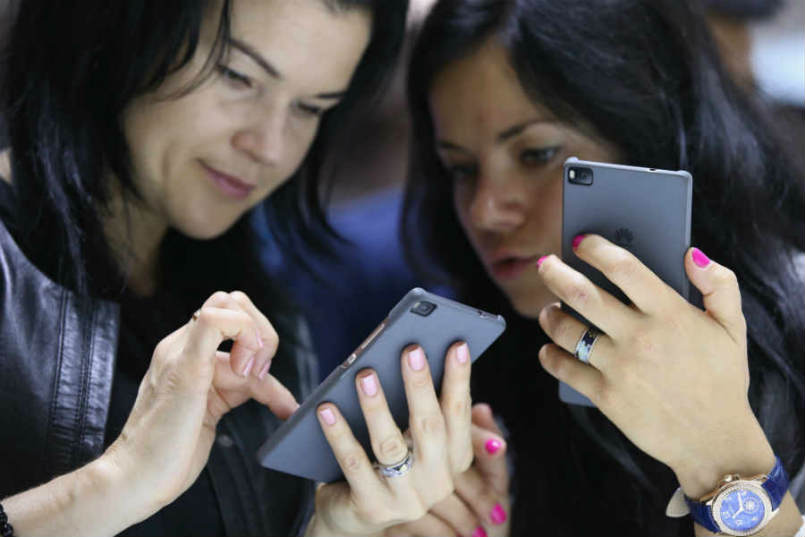Texting can change rhythm of brain waves: study
Wed 29 Jun 2016, 10:59:31

Texting can change your brain waves, according to a new study that found a unique 'texting rhythm' in people who used their smartphone to text message.
People communicate increasingly via text messaging, though little is known on the neurological effects of smartphone use, researchers said. To find out more about how our brains work during textual communication using smartphones, researchers analysed data from 129 patients.
Their brain waves were monitored over a period of 16 months through electroencephalograms (EEGs) combined with video footage. Researchers from the Mayo Clinic in the US found a unique 'texting rhythm' in about one in five people who were using their smartphone to text message while having their brain waves monitored.
The researchers asked patients to perform activities such as message texting, finger tapping and audio cellular telephone use in addition to tests of attention and cognitive function.
Only text messaging produced the newly observed brain rhythm, which was different than any previously described brain rhythm. The unicity of the texting rhythm compared to other forms of mental stimulation could be caused by the combination of mental activity with motor and auditory-verbal neurological activity.
No correlation was found
between the presence of a texting rhythm and the patients' demographic information, including age, gender, epilepsy type, presence of a brain lesion on MRI, or ictal EEG.
between the presence of a texting rhythm and the patients' demographic information, including age, gender, epilepsy type, presence of a brain lesion on MRI, or ictal EEG.
"We believe this new rhythm is an objective metric of the brain's ability to process non-verbal information during use of electronic devices and that it is heavily connected to a widely distributed network augmented by attention or emotion," said William Tatum, director of the epilepsy monitoring unit and epilepsy centre at Mayo Clinic, who led the study.
Next to smartphones, the texting rhythm was also found in iPad users. The researchers hypothesised that the presence of a different brain wave rhythm while using mobile, handheld devices might be caused by their smaller screens, which require more concentration.
This finding could have significant implications for brain-computer interfacing, gaming, and driving, researchers said. "There is now a biological reason why people shouldn't text and drive - texting can change brain waves," Tatum said.
"While there is still a lot more research needed, we have begun to unravel the responses generated by the brain when it interfaces with computerised devices," he said.
The study was published in the journal Epilepsy and Behaviour.
No Comments For This Post, Be first to write a Comment.
Most viewed from Specials
Most viewed from World
AIMIM News
Latest Urdu News
Most Viewed
May 26, 2020
Which cricket team is your favourite to win the T20 World Cup 2026?
Latest Videos View All
Like Us
Home
About Us
Advertise With Us
All Polls
Epaper Archives
Privacy Policy
Contact Us
Download Etemaad App
© 2026 Etemaad Daily News, All Rights Reserved.





































.jpg)
.jpg)
.jpg)


